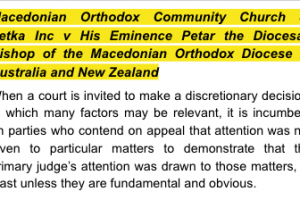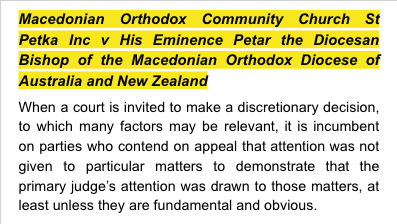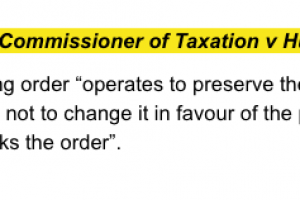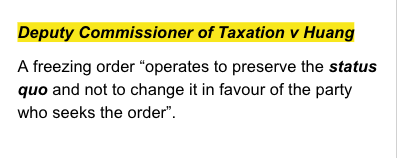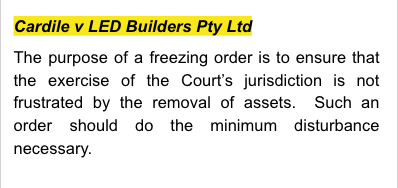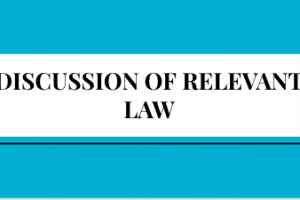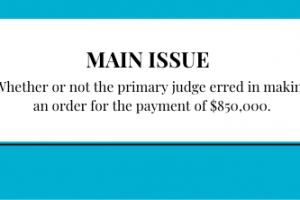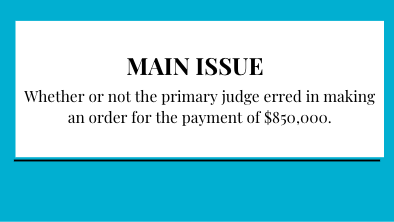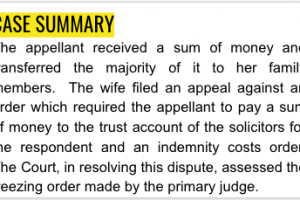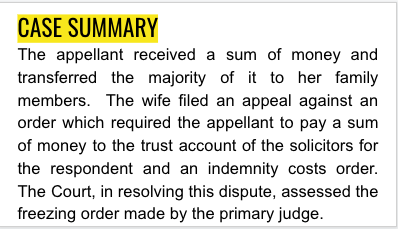- · 4701 friends
Appellant Opposes Freezing Orders

Qian & Xue [2022] FedCFamC1A 93 (21 June 2022)
The appellant received a sum of money and transferred the majority of it to her family members. The wife filed an appeal against an order which required the appellant to pay a sum of money to the trust account of the solicitors for the respondent and an indemnity costs order. The Court, in resolving this dispute, assessed the freezing order made by the primary judge.

Facts:
An order made by a judge of the Federal Circuit and Family Court of Australia (Division 2) on 22 November 2021, required the appellant, Ms Qian (“the wife”) to pay $850,000 to the trust account of the solicitors of Mr Xue (“the husband)” within seven days. The wife received the sum of $850,000 from the third party on 30 August 2021. On 1 September 2021, she transferred $735,000 to her brother, sister and father, all of whom live in China, in varying amounts. The parties were married in late 2015 and separated in early September 2017 (according to the husband) or in early October 2017 (according to the wife).
The parties managed to acquire several properties whilst it subsisted, often with the help of their relatives. The husband’s evidence was that a property at Town C was purchased in July 2018 for $1,050,000 and registered in the wife’s name. The husband says that the wife sold the property in December 2018 to a friend of her father for $800,000, without informing the husband. The wife agreed that the property was sold for $800,000 and that she transferred $667,00 from the sale proceeds to her parents in repayment of loans made prior to and during the marriage.
The husband filed an Initiating Application seeking property settlement orders on 16 September 2019. The husband deposed that he became aware on 17 August 2021 that the Supreme Court of Queensland proceedings over the shareholding in B Pty Ltd had been resolved (Husband’s affidavit filed on 24 August 2021, paragraph 4) and that as a result the wife was to receive a payment of $850,000. On 24 August 2021 the husband filed an Application in a Case seeking an urgent injunction restraining the wife from dealing with the proceeds of the action. The wife received $850,000 on 30 August 2021.
The next day she withdrew $15,000 and paid it to her brother in part repayment of a loan. She said that this payment occurred before the cheque for the deposit cleared. On 1 September 2021, a further $20,000 was withdrawn and paid to her brother, which was the balance of the loan. On the same day the wife withdrew $50,000 and $650,030 (including a $30 bank fee) which she paid to her sister and father respectively for repayment of loans and, in the father’s case, a further $463,000 to support his business which was struggling as a result of COVID-19.
The basis for the injunction that was sought was that any disposition of the funds would put them beyond the jurisdiction of the court and diminish the property pool available for distribution.

Issue:
Whether or not the primary judge erred in making an order for the payment of $850,000.

Applicable law:



Analysis:
The order made by the primary judge for the payment of $850,000 exposed the wife to the risk of punishment for contempt in the event it was not complied with, and indeed, the husband has brought such an application. The purpose of a freezing order is to maintain the status quo and not to improve the security position of the applicant or to render the respondent liable for imprisonment for debt. The order should only have been considered if it was clear that it could be complied with, for example, where the transferred funds were in an account under the wife’s control. The wife did not need to adduce evidence to show that her relatives were unable to or would not return the funds.
Whilst there may have been a basis to prevent the funds from being transferred, absent an order from the Court preventing her from doing so, the wife was free to deal with her funds as she saw fit. It does not follow that the sister, brother and father could repay the funds which they may have spent or would do so as they may feel they were entitled to retain the funds.
Conclusion:
The appellant is granted leave to appeal. The appeal is allowed. Order 2(c) and Order 5 made on 22 November 2021 are set aside. The appellant should deposit the sum of $100,000 into the trust account of [W Law Firm] to be held on trust for both parties and not disbursed without further court order or written agreement between the parties. The respondent is to pay the appellant’s costs fixed in the sum of $5,436.56.


